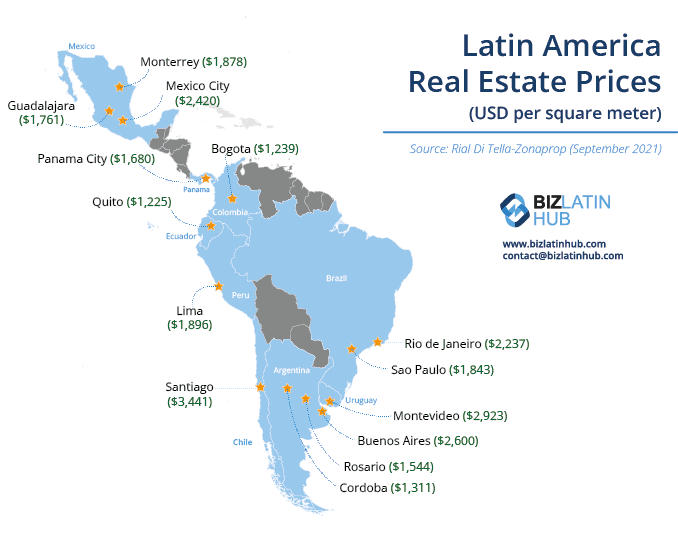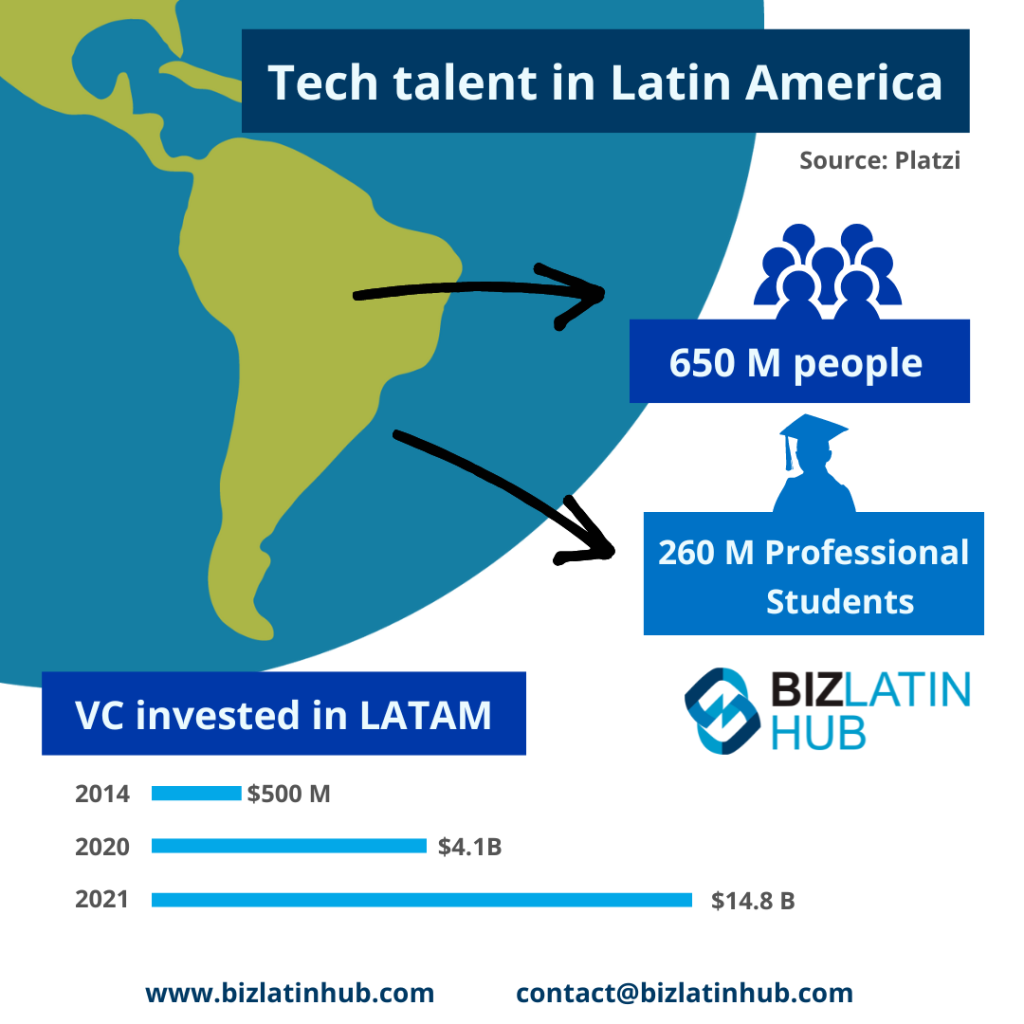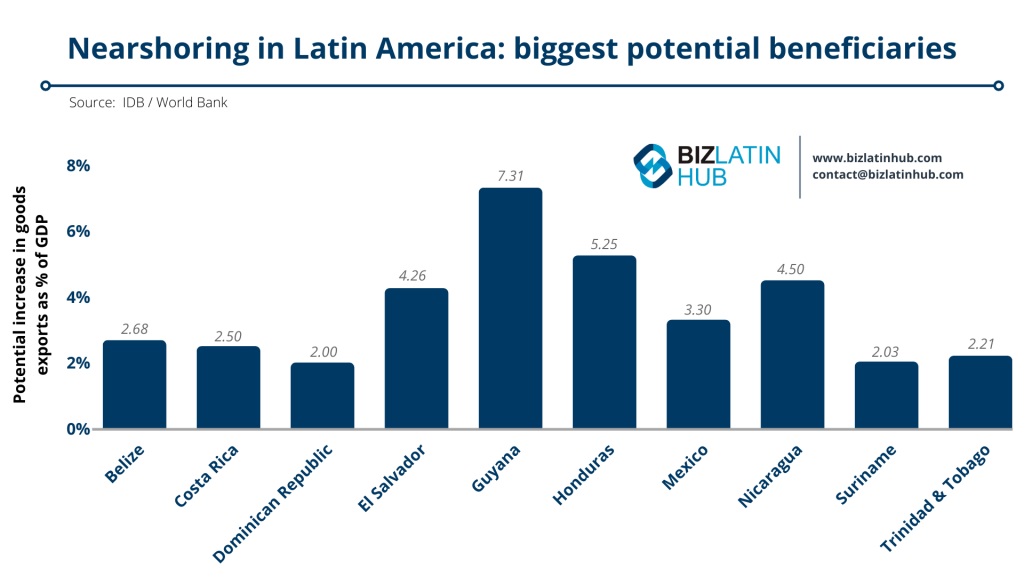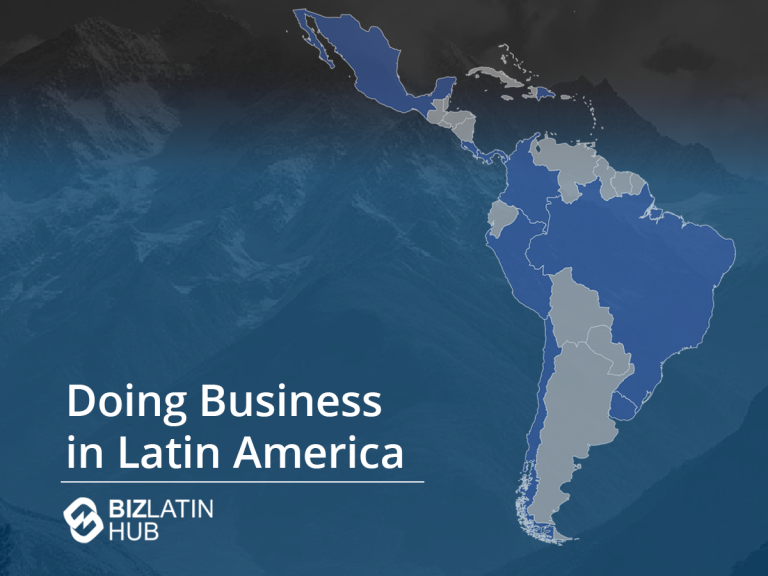This is a region of the world that has traditionally been overlooked, with business often focusing on markets in Asia, the United States, and Europe. However, market entry in Latin America stands out as an intriguing possibility for many firms, big and small, who are weighing up the options of international expansion.
Partly, that’s precisely because the area has been overlooked for so long and is therefore relatively new ground for international investement, whether that’s through company formation or simply seed capital. Market entry in Latin America tends to be relatively hassle free, although you may find some unusual differences in ways of doing business.
That’s where Biz Latin Hub steps in. We can make market entry in Latin America as smooth as possible for you and our ongoing back office services can help keep you compliant in the long term. Not only that, but with a network of 18 dedicated local offices across the region, we can help you expand further too, offering company formation services all across the region.
How and why to enter the Latin American Market?

With a US$4.8 trillion economy, over 600 million citizens and a growing middle class, Latin America represents an attractive market for both foreign investment and company expansion.
With over (12%) of the world’s land mass, there is a lot on offer, including open and transparent financial markets, attractive incentives for companies to invest, an abundance of natural resources (coal, copper, oil, gold etc.) a ready supply of human talent, well developed infrastructure, and at a low market entry cost, when compared to European and North American Markets.
Now is the perfect time to look to Latin America for investment whether that be through international trade or company formation and full market entry.
How to undertake market entry in Latin America?

Broadly there are five key steps to undertaking market entry:
- Understand the Marketplace – Confirm the market opportunity and determine potential clients.
- Analyze the Operating Environment – Understand the local financial, legal and social regulations / dynamics.
- Develop Market Entry Plan – Confirm the required inputs, such as financial, human talent, infrastructure, service support etc.
- Establish – Local company formation, opening local bank accounts, tax registration, hiring of local staff etc.
- Entry – Commence engagement with potential clients.
Once you’ve selected an attractive market and undertaken market entry, it is important to ensure that the local operations are provided with sufficient support and investment to ensure success.
Note: A key failure of many companies entering new markets is that they skip the “Establish” step, whereby they rely on winning new clients through regular visits by staff based in other countries, which in many cases proves ineffective and does not lead to the desired business outcomes.
Within the Latin American context and for business development, new clients are often won through regular engagement, personal relationships and by the company showing a clear commitment to the local marketplace, all achieved through establishing a formal presence within the country. This is often the most common mistake made by companies entering the local market, whereby they:
- Fail to hire local staff
- Decide not to register a local entity
- Avoid the cost of renting a local office space.

How can Biz Latin Hub help you with market entry in Latin America?
We at Biz Latin Hub specialize in helping foreign companies navigate the complexities of doing business in Latin America. We provide the complete suite of back-office services required to enter the Latin American Market, including Market Entry Services, Accounting and Financial Services, Immigration Services, Legal and Commercial Services, Administration Support and Recruitment Services.
By combining our group knowledge and expertise, we have proven time and time again that we are able to effectively offer cross-frontier services to companies wishing to start and/or grow their business within Latin America.
Each client’s requirements are profiled and we develop a full package of services that allow the company to operate and grow within, what is often described as a complex and difficult marketplace. Unlike other entities, we provide a full suite of back office services, ensuring quality and for client needs.
We have a presence in more than 18 different jurisdictions in Latin America and the Caribbean.
Contact us now to discuss your business needs, or read about our team and expert authors.






